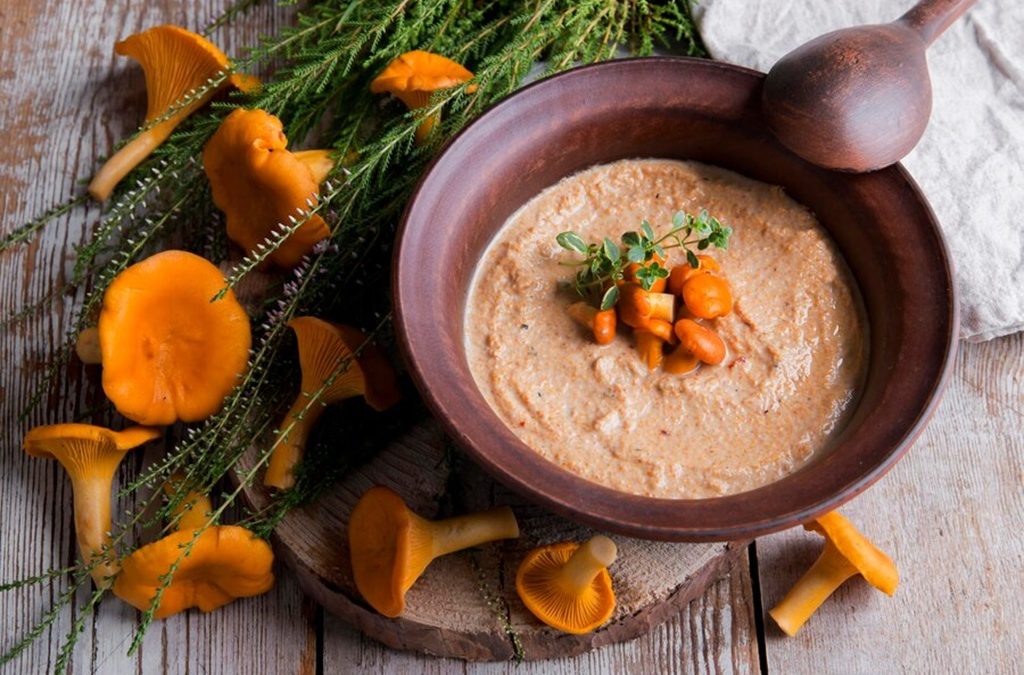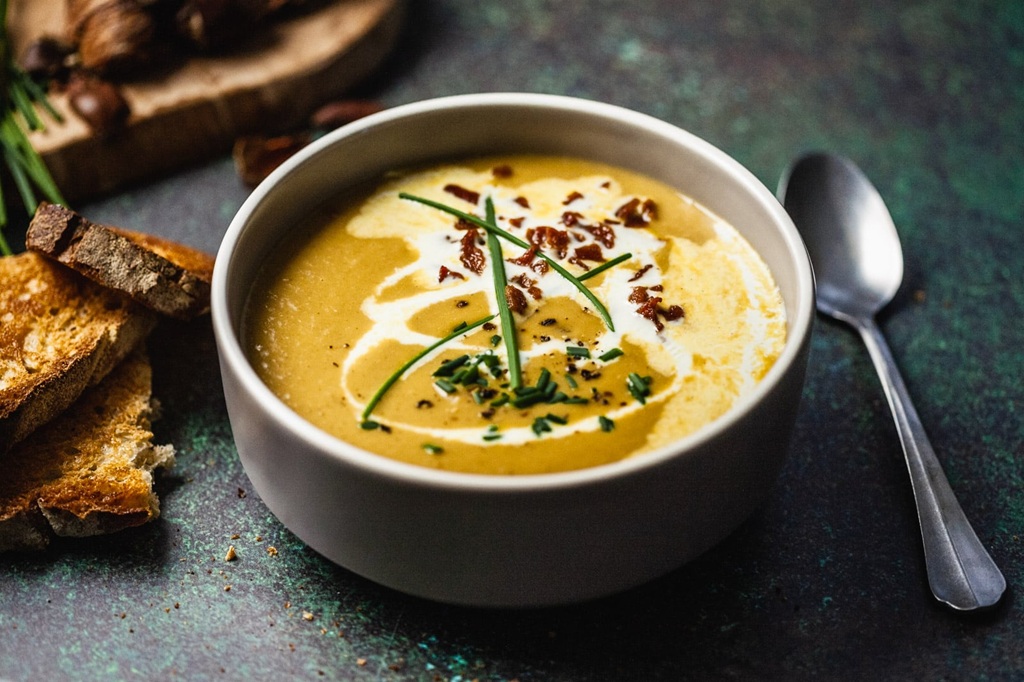
New Year’s Eve Outfits for Wheelchair Users: Sparkle & Comfort Combined
January 5, 2025
Curious About Authentic Ethiopian Flatbread? Follow Teff-based Injera Fermentation Steps!
January 7, 2025Looking for an Earthy, Creamy Soup? Use Roasted Chestnut Soup Thickener!
Soup lovers, rejoice! When it comes to creating a dish that satisfies the soul, few ingredients can elevate the flavor and texture quite like roasted chestnut soup thickener. This unique thickener adds a creamy consistency and an earthy depth, transforming simple soups into gourmet masterpieces. Whether you’re a seasoned chef or an enthusiastic home cook, incorporating roasted chestnuts is a culinary game-changer.
For more creative cooking ideas, don’t forget to explore Tapasociety for inspiration and tips to elevate your dishes.
Table of Contents
ToggleWhy Roasted Chestnuts are Perfect for Soup Thickening
Roasted chestnuts have been used for centuries in European and Asian cuisines, prized for their natural sweetness and dense, starchy texture. They contain approximately 43 grams of carbohydrates per cup, making them a natural thickening agent. Unlike traditional options like flour or cornstarch, roasted chestnuts bring both body and flavor to your soup, delivering an unparalleled balance of creaminess and earthiness.
Their versatility makes them suitable for a variety of soups, from hearty root vegetable broths to luxurious bisques. Moreover, chestnuts are a gluten-free alternative, catering to those with dietary restrictions.
How to Use Roasted Chestnut Soup Thickener in Recipes
Preparation Techniques
To create the perfect roasted chestnut soup thickener:
- Roast the Chestnuts: Begin by scoring and roasting fresh chestnuts at 425°F (220°C) for 20-25 minutes.
- Peel and Blend: Once cooled, peel the chestnuts and blend them into a smooth paste with a splash of vegetable stock.
- Incorporate into Soups: Add the paste directly to your soup during the simmering stage for even distribution.
Pairing Suggestions
Chestnuts pair beautifully with ingredients like butternut squash, mushrooms, and even frozen clams in shell. Speaking of clams, try adding frozen clams in shell to a chestnut-thickened seafood chowder for a truly indulgent experience.
Nutritional Benefits of Roasted Chestnuts
Roasted chestnuts are more than just a flavorful ingredient; they’re also packed with nutritional goodness. Here’s why they’re worth adding to your recipes:
- Rich in Fiber: One cup provides 4 grams of dietary fiber, aiding digestion.
- Low Fat: With only 1 gram of fat per serving, they’re a heart-healthy choice.
- Essential Vitamins: Chestnuts are a great source of vitamin C, promoting immunity and skin health.
- Mineral-Rich: Packed with magnesium and potassium, they help maintain healthy muscle and nerve function.
Creative Soup Recipes Using Roasted Chestnuts
Chestnut and Mushroom Soup
Combining earthy chestnuts with umami-rich mushrooms creates a balanced flavor profile. Sauté mushrooms with garlic, onions, and thyme, then blend in chestnut paste and vegetable stock. Finish with a drizzle of truffle oil for added decadence.
Chestnut and Pumpkin Bisque
This fall-inspired recipe blends roasted chestnuts with pureed pumpkin, cinnamon, and nutmeg. The natural sweetness of the chestnuts complements the spices, making it a holiday favorite.
Related: Wonder How to Achieve Juicy Fish? Try Salt-crusted Fish Using Wet Brine!
Expert Tips for Perfect Chestnut-Thickened Soups
- Control the Consistency: Adjust the quantity of chestnut paste based on the desired thickness.
- Blend Thoroughly: To avoid lumps, ensure the paste is smooth before adding it to your soup.
- Enhance the Flavor: Pair chestnuts with aromatic herbs like sage, rosemary, and thyme for a robust taste.
FAQs
What makes roasted chestnuts a better thickener than flour or cornstarch?
Roasted chestnuts provide both thickening power and flavor, unlike flour or cornstarch, which can be neutral or chalky. Their natural starches thicken while adding a subtle sweetness.
Can I use store-bought roasted chestnuts instead of roasting them at home?
Yes, pre-roasted and packaged chestnuts are convenient and yield similar results. Look for unsweetened varieties for savory dishes.
Are roasted chestnuts suitable for vegan or gluten-free diets?
Absolutely! Chestnuts are plant-based and gluten-free, making them ideal for diverse dietary needs.
What soups work best with chestnut thickeners?
Hearty soups like mushrooms, pumpkin, and seafood chowders benefit the most from chestnut thickeners due to their complementary earthy flavors.
Related: Craving an Exotic Stew? Dive Into the Angolan Muamba Chicken Stew Guide!
How should I store leftover roasted chestnuts?
Store roasted chestnuts in an airtight container in the refrigerator for up to five days. You can also freeze them for longer shelf life.
Is roasted chestnut soup thickener calorie-dense?
While chestnuts are starchy, they’re relatively low in calories compared to cream or butter-based thickeners, making them a healthier choice.
Conclusion
Roasted chestnut soup thickener is the ultimate ingredient for crafting creamy, earthy soups with minimal effort. Its natural thickening properties, combined with its unique flavor profile, make it an indispensable tool for creative cooking. Whether you’re preparing a comforting bowl for a chilly evening or impressing guests with a gourmet creation, roasted chestnuts are sure to elevate your culinary game.





